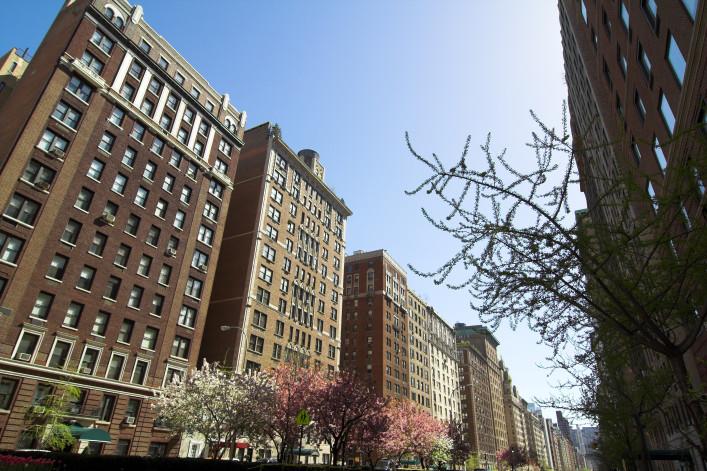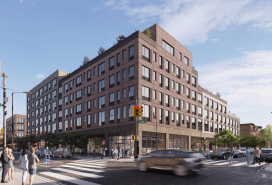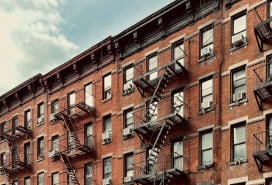What are the risks of buying into a co-op or condo conversion?

iStock
Q. What are the risks and pitfalls of buying into a condo or co-op as it's converting, both from a financial point of view and in light of continued occupancy by rent-stabilized tenants?
A. Buying into a conversion can be a fantastic investment opportunity, but there are a number of things to be cautious about, say our experts.
"The primary risk is that it may be difficult to finance a purchase in a building undergoing a conversion, because most banks require a certain percentage of units to be in contract or closed," says real estate broker Deanna Kory of Corcoran. "The required percentage depends on the bank, but it is often 50% or as high as 70%."
The usual workaround is for a developer to establish a special relationship to a lender willing to make these loans. However, notes Kory, "the worry on the part of most buyers is that if they have to resell the unit, financing will still be difficult until the necessary percentage is reached."
Real estate attorney Karen S. Sonn of Sonn & Associates says due diligence is key when buying in a conversion.
"The most important thing is to figure out what is happening in the building--reading the offering plan in detail and carefully. The contents of this plan is a very important starting place," says Sonn.
If it's an older building undergoing renovations, says Sonn, questions to ask during due diligence include: What is the sponsor going to repair? How much money will be spent? What amenities will be added (such as roof garden, storage, facade work new windows, elevators)? How realistic is the budget? What will not be repaired? Is the projected operating budget realistic?
Also, if it's a co-op, look carfully at the underlying mortgage the converter will leave behind, she says. How big is it? Big enough to push your monthly maintenance fees higher than other similiar buildings, thereby depressing resale value?
(Landlease buildings must be evaluated carefully, including the provisions of the lease, whether it is renewable and on what terms, and the amount the landlease contributes to the monthly carrying costs.)
If you're buying into a co-op, your portion of the underlying mortgage will be added to the purchase price of the apartment you buy for the purposes of figuring out whether you must pay mansion tax owed on purchases of $1m or more, says Sonn. So if you buy a $950,000 apartment and $50,000 of the mortgage is assigned to your unit, you will trigger the mansion tax threshold and fork over an amount equal to 1% of the purchase price to the government.
Another "worry buyers face is that they are going to be in a building with a signficant percentage of renters," says Kory, "and there is an irrational fear that somehow renters will hurt the building financially. But the truth is that the sponsor is responsible for all maintenance fees...to keep the building running."
Unfortunately, she notes, "it is practically impossible to ascertain the financial strength of the developer. There is not a lot of disclosure that is required by law so it is often purely based on reputation alone."
The lender is usually supposed to continue to fund the conversion if the sponsor defaults; Kory says she has rarely seen a default situation, and "in the instances where it has occurred, usually the building comes out stronger after a few years of struggle."
Another issue with renters, says Sonn, has to do with the tenor of the relationship between the developer and the renters who are not buying their units and who may be living, resentfully, through the construction upheaval that comes with a conversion.
"It depends on the developer and converter and how they handled it with the tenants," says Sonn, who notes that in one pricey Park Avenue conversion, the developer is paying for everyone to move out during the construction.
There are significant upsides to buying into a conversion as well.
You can get a particularly good deal before the offering plan has been declared effective, says real estate broker and asset manager Roberta Axelrod of Time Equities.
"The reason for this is to offset the fact that purchasers cannot close until the required number of sales have been made," she explains.
Also, points out Kory, "some of the newer conversions are beautifully renovated with top finishes and the buildings have topline amenities."
Sonn observes that buying a conversion may be preferable to buying brand new construction.
"Buying into an established rental building is safer than buying new construction, because you have a history to dig into," says Sonn, whereas history is just beginning with a brand new building.
Trouble at home? Get your NYC apartment-dweller questions answered by an expert! Send us your questions.
See all Ask an Expert.
Related:
Ask an Expert: Is it ever safe to buy in a landleased building?
When renters go bad, condos go to court (or wait for the lease to expire) (sponsored)
Ask an Expert: Signs of a toxic co-op



























